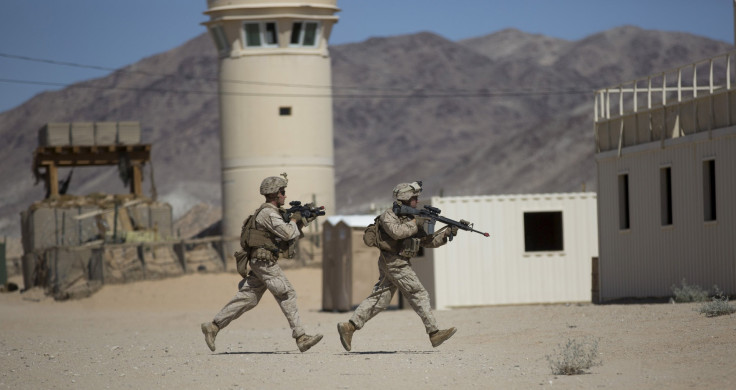US Army Budget Cuts Leave Military On 'Ragged Edge,' Official Says

If you’re an American soldier, you may want to look away now. The U.S. Army is on the “ragged edge” of being able to adequately meet the full scope of challenges it faces now and in the future, Army Secretary John McHugh said Monday in Washington, D.C., at the opening ceremony of the annual meeting of the Association of the United States Army. The U.S. military, the Army in particular, is facing heavy budget cuts because of government sequestration and the changing geopolitical military environment that has meant the U.S. is less reliant on a strong Army.
"My greatest fear is what comes next, what don't we see that's heading toward us at this moment. What don't we see that will face us and our allies," said McHugh, according to a Defense News report. "Will we be agile and ready enough?"
Amid squabbling between the White House and Congress over military spending, which has been held up over disagreements about how the military will be funded moving into 2016, McHugh said at the opening ceremony that Congress needs to be educated about the reality of security challenges throughout the world.
Since the end of the wars in Iraq and Afghanistan in late 2011 and 2014, respectively, the U.S. Army has cut 80,000 soldiers and shut down 13 brigade combat teams, including two in Germany and one in South Korea, to reach an end-strength of 490,000, according to an Army Times report. An additional 40,000 will be cut by the end of 2018, by which point the full scale of the reductions will represent a 21 percent cut from the Army’s 2012 peak.
The cuts represent an end to fighting ground wars in Iraq and Afghanistan, mostly using Army and Marine assets, to instead helping other countries build their own fighting forces, as has been seen in Iraq, Syria, Afghanistan and Ukraine. Also, the U.S. pivot toward Asia, which is predominantly a maritime theater, will see the Pentagon turning increasingly toward the Navy for its primary military needs in the future.
McHugh said sequestration had hindered the Army’s readiness levels, while noting some units were only 30 percent prepared compared with the 60 percent standard commanders wanted.
“The nation is at risk, and ultimately, the world is at risk," McHugh said. "If we continue to strip resources from this Army, at some point someone is going to have to tell us to stop doing something. As I look at the world right now, I don't know what that would be. ... Requirements are overtaking our capabilities."
© Copyright IBTimes 2025. All rights reserved.






















